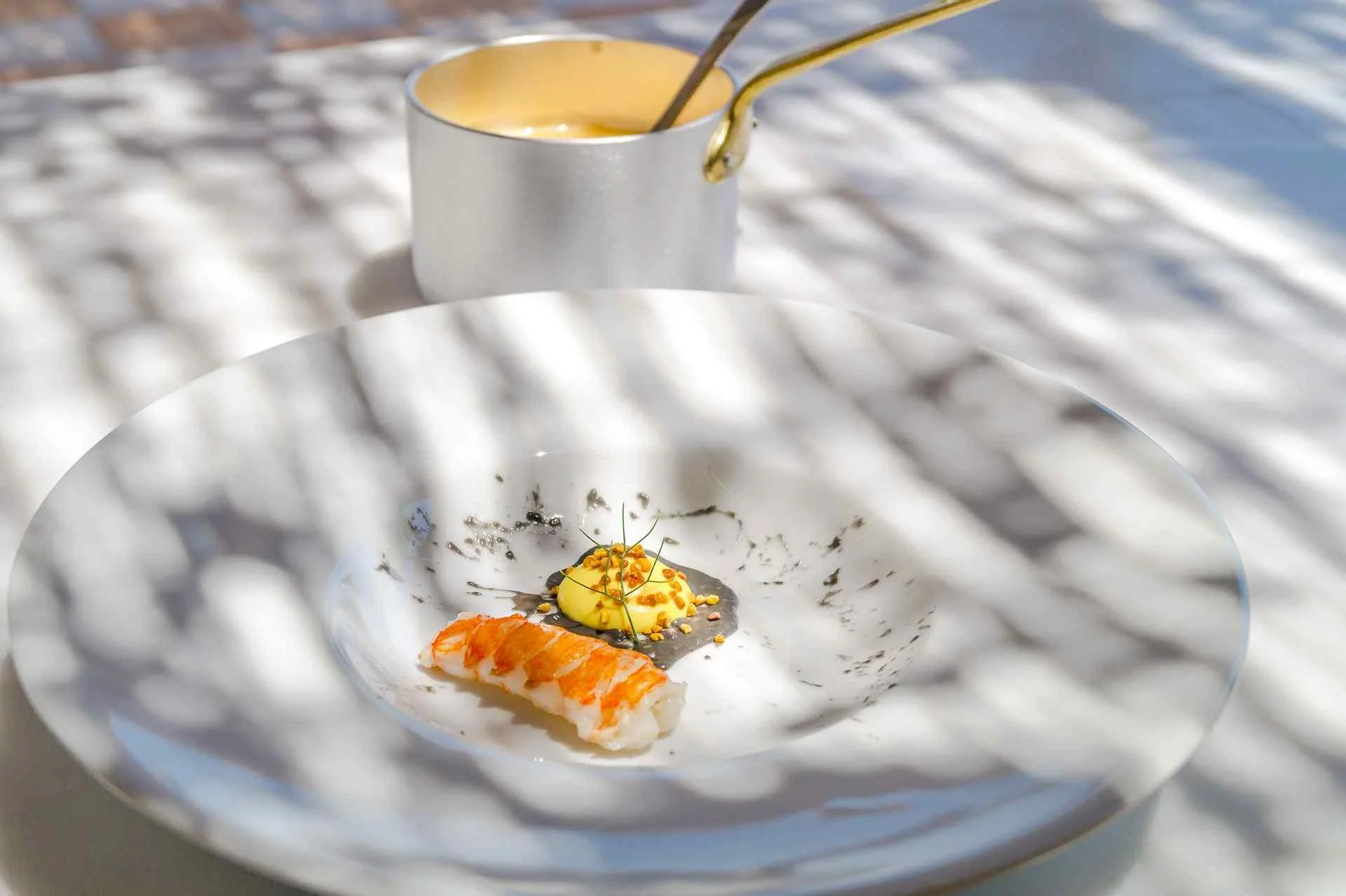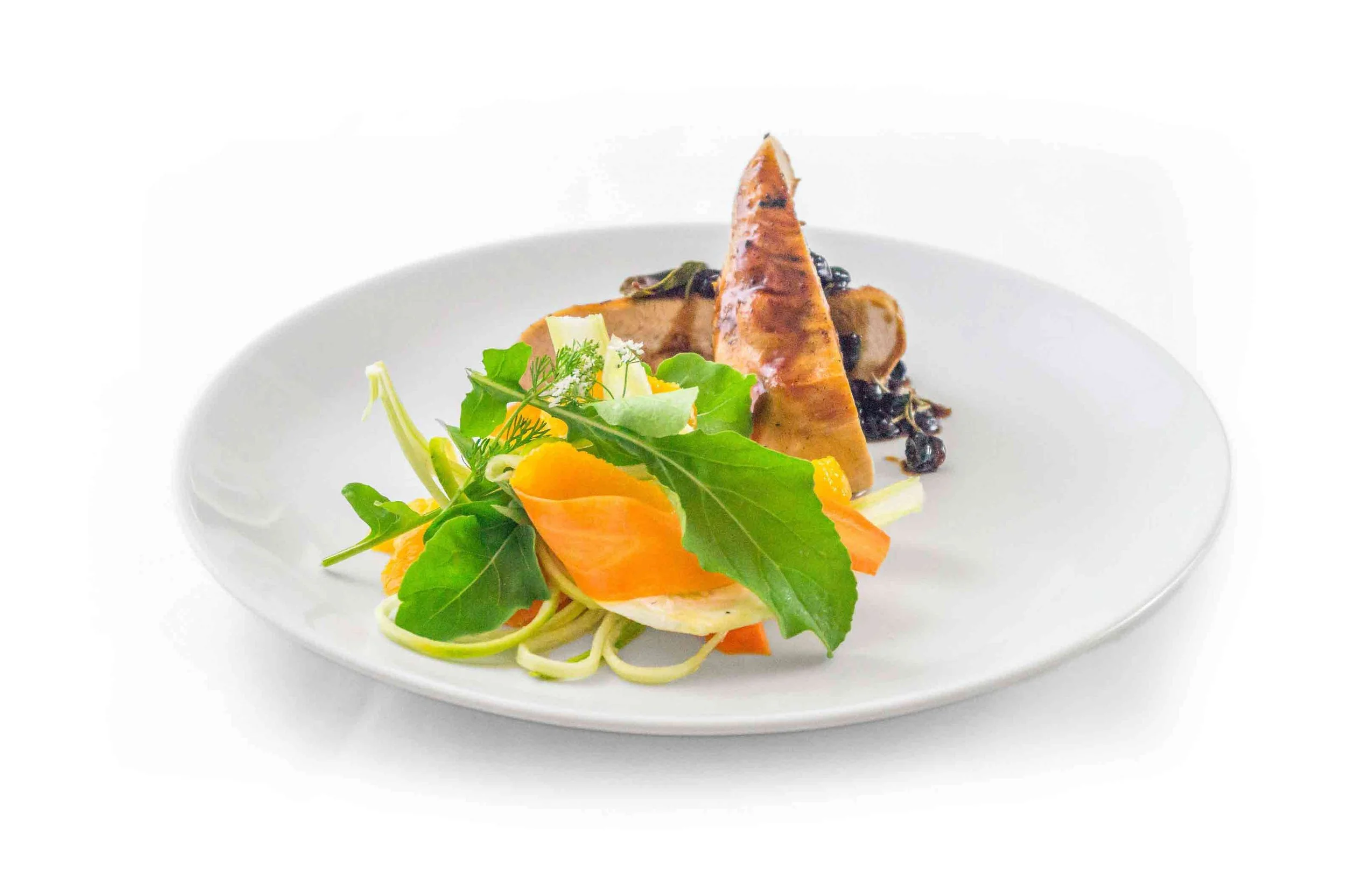Experience Mediterranean cuisine reimagined — where tradition meets creativity and fine-dining craft.
1 Week All Inclusive
The first short-format course that prioritizes true culinary creativity — empowering you to design original, modern Mediterranean dishes rather than follow existing formulas.
This one-week program is designed for passionate cooks and professionals who want to move beyond tradition and explore the modern evolution of Mediterranean cuisine. Through chef-led sessions, you’ll study new techniques, creative plating, and fine-dining interpretation — all rooted in the region’s timeless flavors.

Our small group courses offer a unique blend of chef-led demonstrations, tastings, and guided hands-on practice in a relaxed, inspiring environment. Designed for 2–8 participants, these courses are ideal for culinary enthusiasts who want to deepen their knowledge through professional style training.
Mediterranean cuisine is our foundation — its ingredients, techniques, and cultural depth form the core of our teaching. We begin by honoring tradition and mastering its craft. Then we push forward: encouraging creativity, innovation, and thoughtful reinterpretation. This is how culinary wisdom evolves — with respect for the past and a desire to shape the cuisine of the future.
100% International Profile
You will cook with students from every continent.
65% Come from other Sectors
Your peers will have experiences that will complement your learning.
What You’ll Learn
Contemporary cooking and plating techniques
Modern adaptations of classic Mediterranean dishes
Sous-vide, low-temperature, and textural innovation
Foams, molecular textures, purées, powders, smoke
Ingredient pairing, flavor construction, and menu design
The creative process behind Michelin-level cuisine
Enrolment Requirements
All levels are welcome, but we recommend having some prior cooking experience and confidence working in a kitchen (professional experience is not required). A basic understanding of Mediterranean ingredients and food culture will also help you gain the most from this program.
If you feel you need to strengthen your fundamentals or build a deeper connection to traditional Mediterranean cuisine, we suggest starting with our “Discover Mediterranean Cuisine” course before advancing to this one.
Daily demonstrations, tastings, and guided creative sessions that encourage experimentation and artistic expression. Participants will develop their own dishes — applying innovation while respecting the essence of Mediterranean cuisine.
The course concludes with a collaborative tasting menu prepared by the group, showcasing each participant’s creative interpretation.
Itinerary
-
Arrival, Check-In, Welcome Meze dinner
-
Theme: The modern Mediterranean palate: flavor construction, balance, and perception
Regions: Pan-Mediterranean (Greece, Italy, Spain, France, Morocco, Lebanon)
Techniques: Sensory analysis, flavor mapping, emulsification, extraction, infusion, modern foundationsTheory & Tastings:
The Mediterranean as a flavor system, not a recipe set
Climate, terroir, salinity, and acidity as design tools
Salt–acid–fat–heat–aroma balance in modern cuisine
Guided Tastings & Sensory Training
Wines
Acids: wine vinegar, citrus, verjus, isolated acids (malic, tartaric, citric, ascorbic)
Sea salts & salinity components - Flavored salts
Mediterranean aromatics & spices
Creating our own spice blendsFresh herbs & intensity control
Umami sources: anchovy, miso-style ferments, aged cheeses
Demonstrations (12–14)
Professional wine tasting methodology
Garlic oil: cold vs hot infusion, garlic powder
Herb oils (basil, rosemary, parsley)
Peperoncino oil – extraction without bitterness
Meat stock – modern demi glace
Modern vinaigrettes (stable emulsions)
Powder creation intro (olive, vegetables)
Wine Tasting Session 1 – Sensory Analysis
Visual, aromatic, structural analysis
Acidity, tannin, alcohol, body
Popular international varieties
Flavor balance
Distinction between Taste & Flavor
-
Theme
Deconstruction, reinterpretation, and creative reconstruction
Regions
Greece, Italy, Spain, Southern France, Levant
Techniques
Sous-vide, confit, gelification, foams, smoking, controlled grilling
Theory
How Michelin chefs reinvent classics without losing identity
Deconstruction vs reinterpretation
Texture layering & contrast
When tradition becomes constraint — and when it becomes strength
Demonstrations :
Deconstructed Greek salad (tomato water, feta snow, olive dust)
Modern moussaka: braised lamb, pressed aubergine, potato puree
Tzatziki pearls (spherification)
Marinated pork tenderloin
Potato puffs
Calamari skewers and coconut tzatziki
Deconstructed spanakopita
Lamb terrine
Pork fillet with sweet wine and smoked pork dust
The new Saganaki (Shrimp, tomato spheres, ouzo gel, feta crumble)
Hands-On:
Deconstructed Greek salad plating exercise
Deconstructed spinach pie plating exercise
The new Saganaki plating exercise
Wine Tasting Session 2 – Food & Wine Pairing
Pairing fundamentals and rules
Wine clashes in contemporary cuisine
Food pairing tasting exercise
Team Game: pairing wines with reimagined dishes (trivia)
-
Theme
Elegance, precision, restraint
Regions
Italy (North & South), Provence, Côte d’Azur
Techniques
Fresh pasta innovation, emulsions, refined reductions, fine plating, smoking, sous vide
DemonstrationsLinguine with smoked mussels
The new Parmigiana
Overcooked carbonara + cured egg yolk
Tomato & Basil risotto
Olive oil & rosemary gelato
Sous vide monkfish
Tagliolini with langoustine tartare
Mozzarella balloon caprese
The new Tiramisu (egg free & microwave sponge)
Rice crisps
Beef cooked three ways (Raw, Cooked, Overcooked)
Baba au rum with coconut & pineapple
Hands-On Practical
Ravioli with liquid filling
Pizza canotto moderna
Tuna tataki with orange and dijon sauce
Profiterolles with salted chocolate sauce
-
Theme
Fire, smoke, boldness, modern Spanish creativity
Regions
Spain, Western Mediterranean
Techniques
Charcoal, smoking, dehydration, reduction, frying, avant-garde Spanish methods, Gelato VS Ice-cream - recipe balancing.
Demonstrations
The med tempura & aioli
Sous vide & fried octopus
New patatas bravas with smoked cheese powder
Grilled cabbage & smoked trout
Paella rice crisp
Peach espuma dessert
Gelato Balancing Session
Sugar & fat balancing
Stabilizers explained
Freezing potential
Gelato as a plated element
Hands-On Practical
Personal gelato recipe creation, balancing and tasting
-
Theme
Spice, aroma, storytelling, identity
Regions
Lebanon, Israel, Turkey, North Africa
Techniques
Infusions, fermentation, modern spice handling, concept building
DemonstrationsUltra-smooth hummus
Aquafaba foams
Preserved lemon gel
Harissa oil
Fig leaf powder
Kofta
Labneh dehydration
Pomegranate caviar
Saffron cloud
Restaurant Creation Session
Dining concept vs menu
Service styles
Tasting menu flow
Costing & premium positioning
Signature dish creation
Menu creation exercise (teamwork)
-
Activities
Participants take over the kitchen operation and design:
Concept
Menu
Signature dish
Mise en place planning
Execution & plating
Chef feedback & critique
Final Outcomes
Fully developed modern Mediterranean dish
Clear narrative & plating logic
Wine pairing suggestion
Professional presentation
-
Item description
Price: 3550€ per person
This Program Includes:
-
Airport transfers to the hotel upon arrival and departure are included in the price
-
Accommodation in a private room at Semeli boutique hotel or Armonia Bay Hotel.
-
All the lessons, booklets, prints and stationary for note taking is included.
-
Kitchen facilities and use of tools and equipment are included. You don’t have to bring your own knives and tools.
-
All meals (Breakfast, Lunch, Dinner, Snacks) are included along with drinks and Alcoholic beverages and Fine wines. Coffee and Tea are offered throughout the day at no extra charge.
-
An apron with our logo will be provided as a gift at the end of the course.
-
Participants who have participated in the course will receive a printed certificate of completion for this course.
-
Excursions, Cultural visits and Dinning out are included if they are part of the program.





